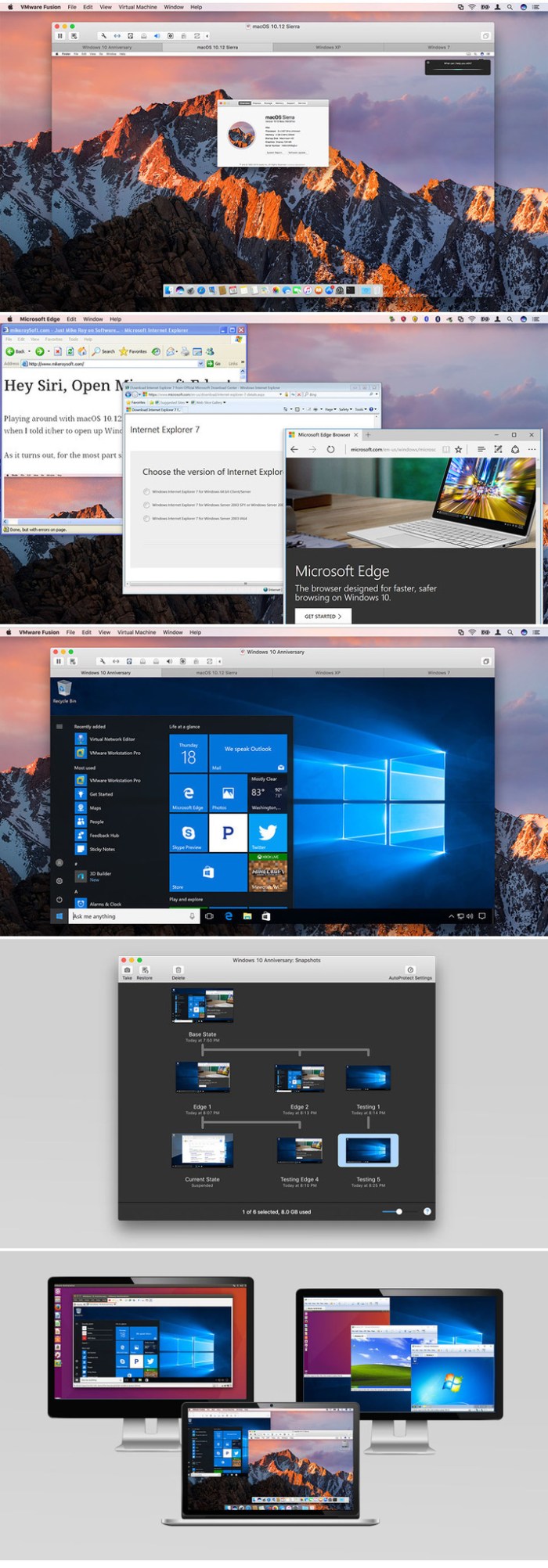| Name |
VMware Fusion 8.5.5 |
| Size |
487.0 MB |
| Created on |
2017-03-15 05:42:09 |
| Tracker |
http://109.235.50.166:2710/announce |
| Hash |
a497ffe46bbb653171be3a22cd0e7c4d1712cf5e |
| Files |
VMware Fusion 8.5.5.zip (487.0 MB) |
Description
Name: VMware Fusion for Mac Version: 8.5.5 Release Date: March 14th, 2017 Mac Platform: Intel OS version:OS X 10.9 or later (OS X 10.11 recommended) RAM minimum: 2 GB RAM (4 GB or more recommended) Processor type(s) & speed: 64-bit processor Web Site: http://www.vmware.com/products/fusion-pro Overview: VMware Fusion 8 and Fusion 8 Pro--the latest versions of its virtualization software for running Windows on a Mac without rebooting--include full support for Windows 10, OS X El Capitan, and the latest Retina Macs, in addition to always-on access to Microsoft Cortana. They support DirectX 10 and OpenGL 3.3 for up to 65% faster graphics, alongside compatibility with USB 3.0 and multiple monitors with different DPIs. The virtual machine platform also delivers full 64-bit support with up to 16 vCPUs, 64GB RAM, and an 8TB hard drive for a single virtual machine. Fusion 8 and Fusion 8 Pro are optimized for the latest Macs, including the iMac with Retina 5K Display and 12-inch MacBook. DirectX 10 support enables Mac users to run Windows virtual machines with native resolution on a 5K display, with USB-C support and Force Touch pass-through also in tow for the latest MacBooks. Fusion 8 Pro has additional advanced features and improvements, including the ability to connect to VMware vCloud Air, IPv6 support for both bridged networks and IPv6-to-IPv4 Network Address Translation (NAT), improved integration with VMware vSphere and support for several new Linux distributions and other operating systems. What's New in Version 8.5.5: • This release of VMware Fusion addresses an out-of-bounds memory access vulnerability related to the drag-and-drop feature. This vulnerability might allow a guest to execute code on the operating system that runs VMware Fusion. The Common Vulnerabilities and Exposures project assigned the identifier CVE-2017-4901 to this issue.
